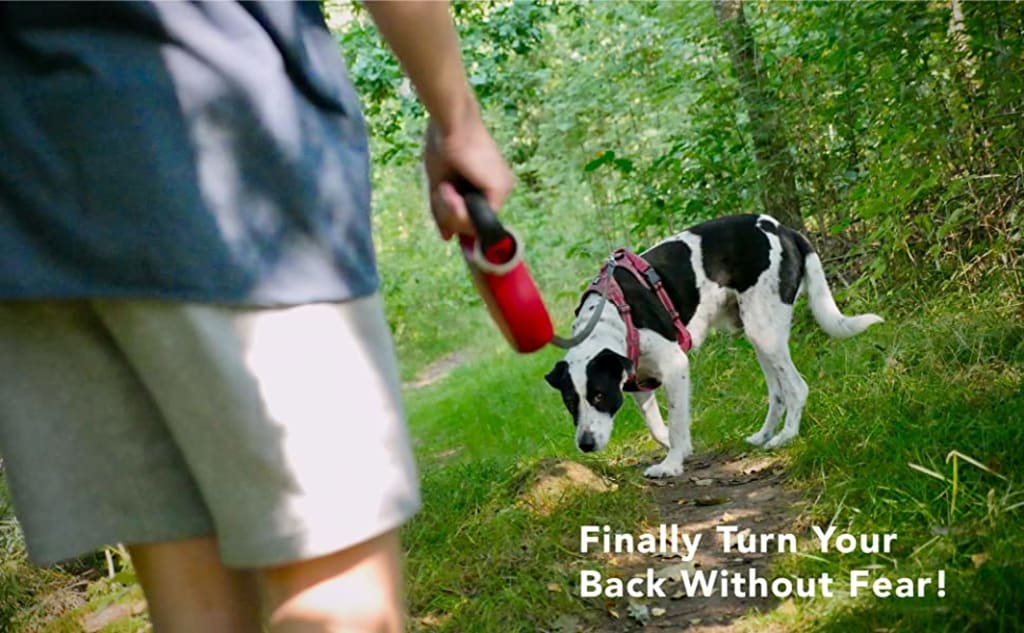Coprophagia In Dogs - The Nasty Habit Nobody Talks About
What is it? plus best 6 tips on how to treat once and for all!

Why Do Dogs Eat Poop?
We dog owners like nothing better than a warm wet kiss from a furry friend. It's a good sign of the bond we share with them.
But there can be one deterrent that would keep us from enjoying that sloppy wet kiss. “Doggy breath” can be bad enough but if you catch your pal eating poop, all bets are off.
Catching your dog eating feces, termed coprophagia, can be very embarrassing and I suspect many pet parents hide it. Unless concerns develop about their pup’s health, it remains a “dirty” little secret.
Compared to how many dogs statistically eat their own feces–which we’ll discuss in just a moment–and how few folks bring it up during appointments, I suspect many pup parents are embarrassed by the very idea. After all, if a human were to engage in such a revolting act, you wouldn’t want to go anywhere near them, right?
Well, as much as our pups are members of the family, this still doesn’t make them true human beings and as such there are some behaviors very different for dogs compared to people.
Coprophagia in dogs is one of those. But not to fear! I understand this behavior is unpleasant so in addition to discussing why it happens, we’ll also cover 6 tips to help it to stop. It doesn’t have to be a “dog eat poo world” out there!
Behavioral Triggers Dog Owners Should Be Aware Of
There are medical causes that can lead to coprophagia, such as lack of nutrients, poor diet, intestinal parasites, and other malabsorptive disorders.
According to veterinary behaviorist Dr. Benjamin Hart, about 12% of dogs eat poop consistently and nearly ¼ have been caught doing it at least once. While this is certainly not normal behavior, you shouldn’t panic yet.
Let's take a look at behavioral triggers...
- They get it from their Mothers: After her puppies are born, it is a normal instinctive behavior for the mom to ingest her puppies’ stools, to keep them and the surrounding area clean. It is theorized that young dogs may in some way learn this behavior from their mothers.
- Multiple dog households: In Dr. Hart’s research, dogs were more likely to exhibit stool-eating behavior if they lived in multiple dog households. This suggests that population pressure and stress can be risk factors.
- Not enough stimulation: Contrary to the prior point, dogs who are in isolation too long and don't receive enough stimulation throughout the day are at higher risk for this behavior as well. This is another reason why daily exercise and play are so important for dog health.
- Improper training methods: Outdated training methods involving rubbing your dogs nose in their own mess when they have accidents has been linked to encouraging coprophagia
- Scavenger Instincts: Instinctively, dogs are scavengers and they have an excellent sense of smell. This is why they are also attracted to smells from our trash and the leavings of other animals. Dogs are constantly attracted to the smell of feces when they investigate their environment.
6 Tips to Treat and Prevent Coprophagia In Dogs
- Speak with your vet
- Stool eating deterrent supplements
- Improve diet & food quality
- More consistent exercise
- Positive reinforcement
- Negative reinforcement
Bonus Tip: If you have a cat, make sure you're cleaning out the litter box frequently and consider moving it into a room that your dog cannot access.
Conclusion
Stool eating behavior is pretty gross, and I can certainly sympathize if your pup does it. But depending on the circumstances, just keep in mind that your dogs coprophagia doesn’t necessarily mean there is something really “wrong” with him. In fact, coprophagia may be a long-standing ancestral behavior dogs can exhibit.
About the Creator
Enjoyed the story? Support the Creator.
Subscribe for free to receive all their stories in your feed. You could also pledge your support or give them a one-off tip, letting them know you appreciate their work.





Comments
There are no comments for this story
Be the first to respond and start the conversation.